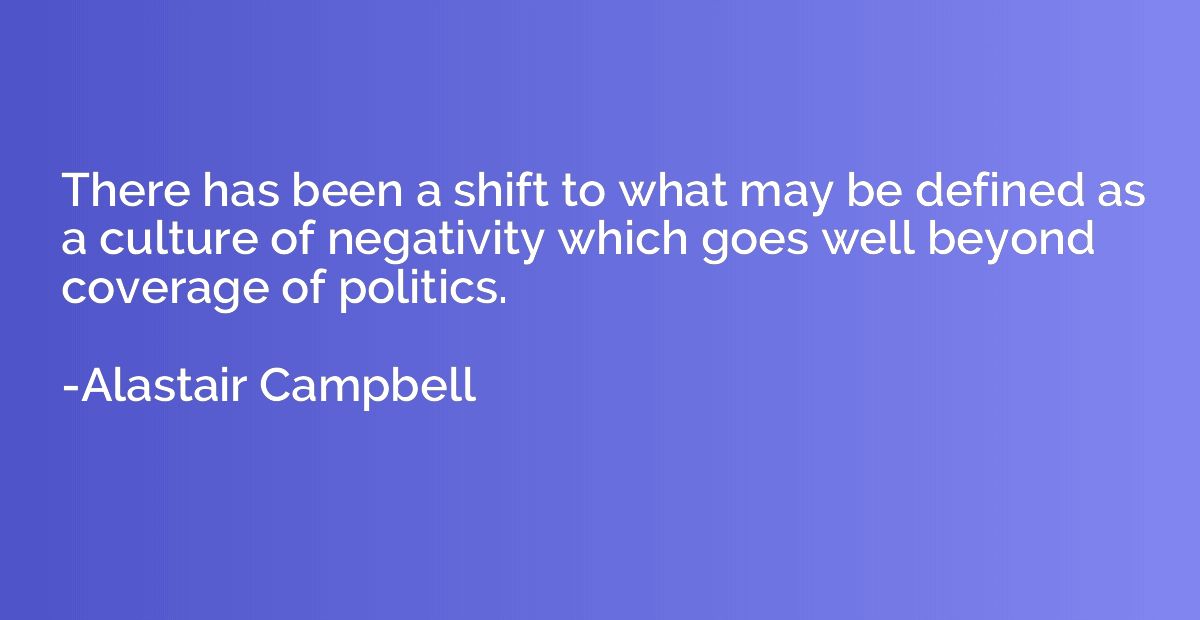Quote by Paula Abdul
Constructive criticism is about finding something good and positive to soften the blow to the real critique of what really went on.
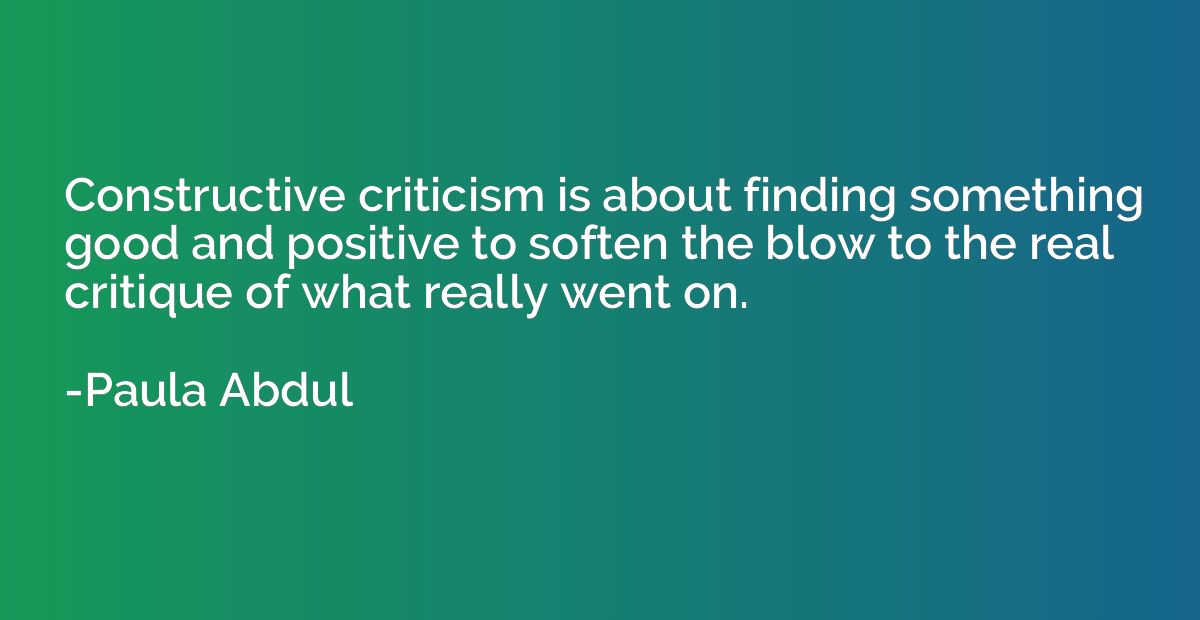
Summary
The quote emphasizes the idea that constructive criticism involves not only pointing out flaws or errors but also recognizing and highlighting the positive aspects of someone's work or actions. By acknowledging the strengths before delving into the critique, this approach seeks to reduce the negative impact and make the feedback more palatable and encouraging. It suggests that finding something good to start with can help balance and soften the criticism, making it more helpful and less disheartening for the recipient.
By Paula Abdul




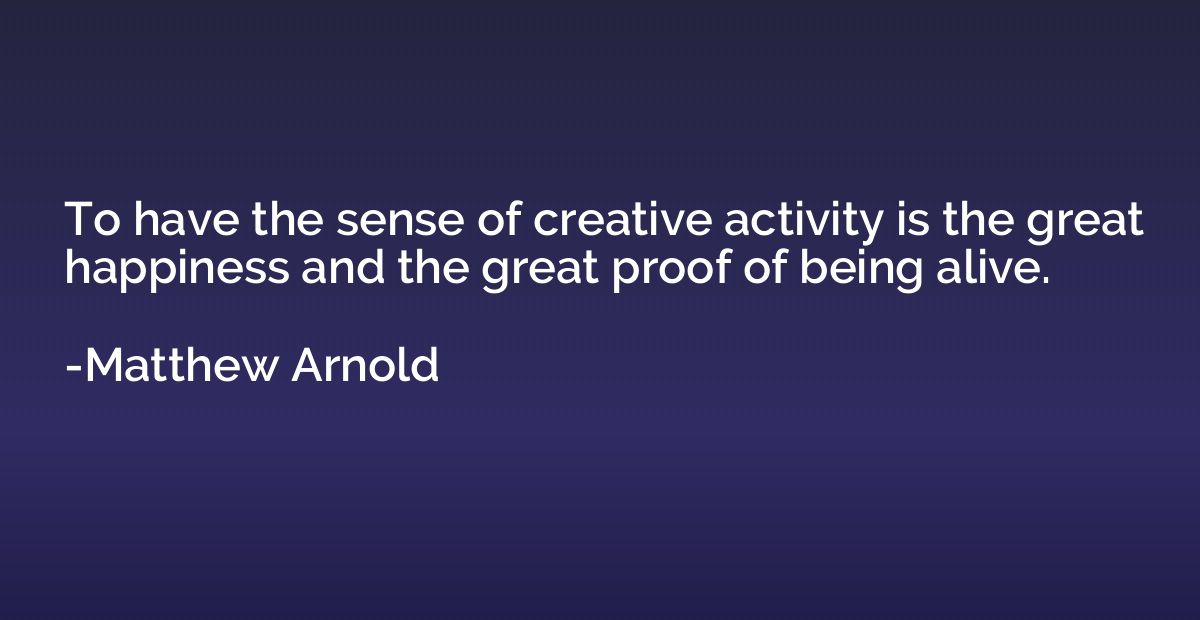
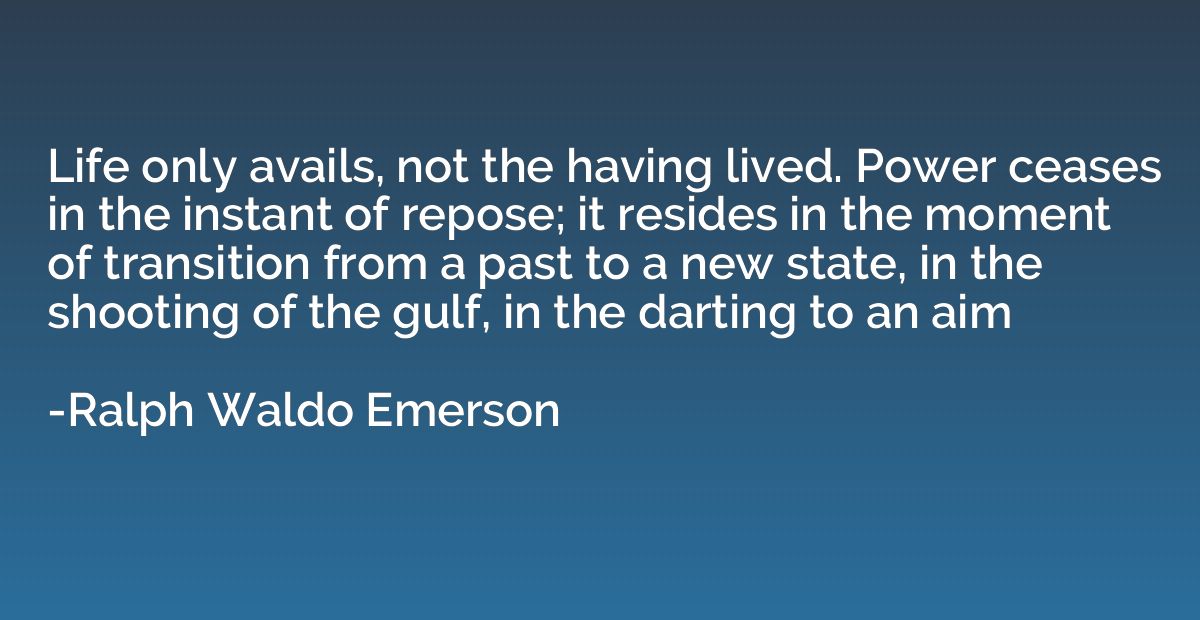


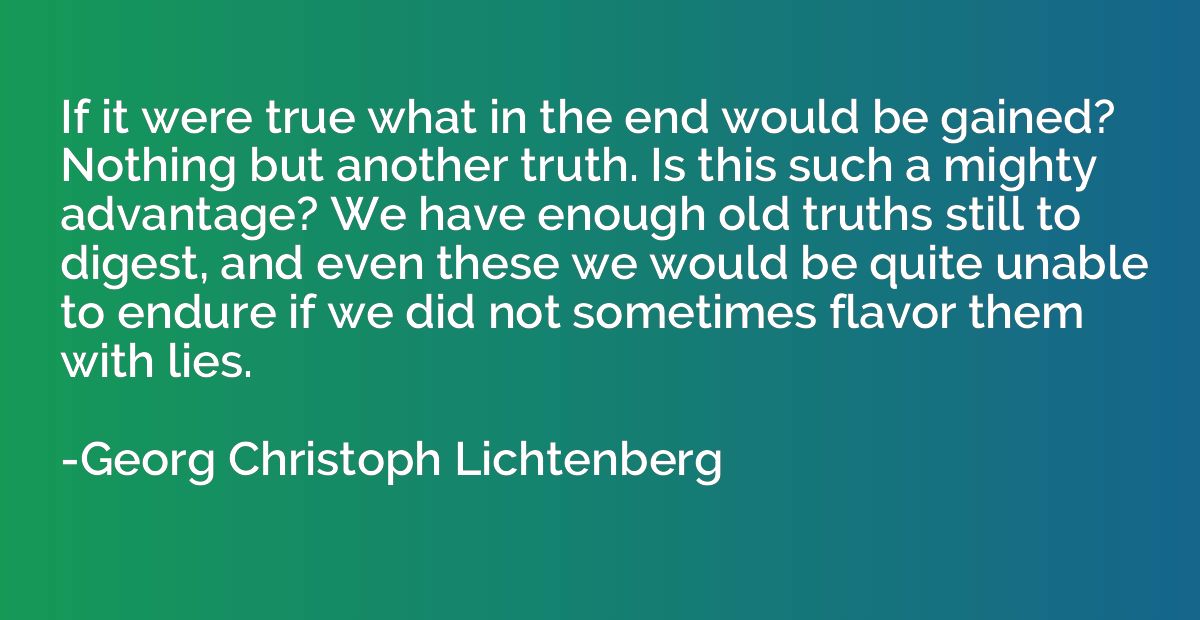

![[Christ] has accomplished your salvation. But He has not yet](https://quotation.io/quotes/christ-accomplished-salvation-yet-perfected.jpg)

